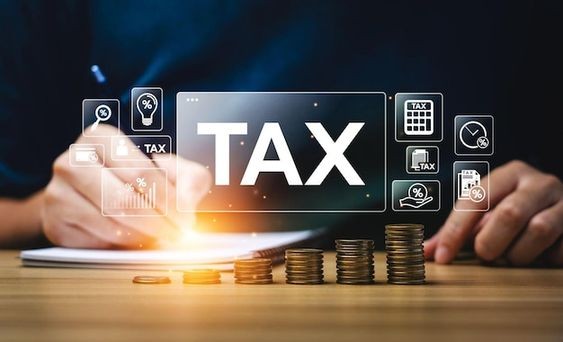Tax policy plays a critical role in shaping business investment and growth decisions. For business owners, understanding the intricacies of tax regulations is essential, as it can significantly influence profitability, cash flow, and the ability to expand operations. With expert assistance from professionals like Webtaxonline, companies can navigate these tax complexities, optimize their financial strategies, and create a stable foundation for future investments.
How Tax Policy Influences Business Decisions
Tax policy consists of the laws and regulations determining how businesses are taxed, covering corporate tax rates, deductions, credits, and investment incentives. These policies can encourage businesses to grow, hire more employees, and invest in new technologies or infrastructure. However, they can also present challenges, especially when rates or compliance rules change frequently. Here are several ways tax policy directly affects business investment:
- Corporate Tax Rates
Corporate tax rates have a direct impact on profitability, affecting how much capital businesses have available for reinvestment. When tax rates are lower, companies retain more profits, which can be reinvested into expanding operations, hiring, or research and development (R&D). Conversely, high tax rates reduce net profits, leaving less flexibility for growth-related expenses. - Investment Deductions and Credits
Many governments provide tax deductions and credits to incentivize specific types of investments, such as those in renewable energy, technology upgrades, or R&D. These incentives not only help businesses reduce their tax liability but also motivate them to innovate and adopt sustainable practices. For example, companies can benefit from energy-efficient tax credits when upgrading to eco-friendly equipment, which has long-term benefits for both the business and the environment. - Capital Gains Taxes
Tax policies surrounding capital gains—profits from selling assets like equipment, property, or stocks—can impact how businesses approach investments. High capital gains taxes may discourage companies from selling assets or investing in new ones, as they may prefer to avoid paying significant taxes on sales profits. Conversely, favorable capital gains policies can make it more attractive for businesses to reinvest or restructure assets for better growth opportunities. - Depreciation and Amortization Rules
Depreciation and amortization are accounting methods that allow businesses to gradually write off the cost of long-term assets. Tax policies that offer accelerated depreciation—allowing businesses to claim higher deductions upfront—can make it financially feasible to invest in expensive equipment or facilities. This policy is especially beneficial for businesses looking to make substantial capital investments in the near term, as it reduces taxable income and improves cash flow.
Tax Policy Impacts on Business Expansion and Hiring
Business growth often relies on investments in human capital, infrastructure, and technology. Tax policies can either support or restrict these investments, which, in turn, affects job creation and economic development. Here’s how:
- Hiring Incentives
Tax credits for hiring, especially in areas with high unemployment rates or for specific groups such as veterans, can encourage businesses to expand their workforce. These policies not only reduce hiring costs for businesses but also promote economic growth within communities. - Location-Based Tax Advantages
Many governments offer tax advantages for businesses that operate in certain locations, like economically distressed areas or special economic zones. These incentives encourage companies to invest in underserved regions, helping create jobs and boost local economies. By strategically choosing business locations based on tax incentives, companies can reduce operational costs while contributing positively to the community. - Tax-Deferred Accounts and Retirement Plans
Policies encouraging tax-deferred accounts, such as 401(k) plans, allow businesses to offer retirement benefits to employees, making it easier to attract and retain talent. By offering such benefits, companies can create a more stable, productive workforce while also benefiting from tax deductions associated with these contributions.
The Challenges of Navigating Tax Policy for Investment
While tax policies provide opportunities, they also present challenges, particularly for small- and medium-sized businesses that may lack the resources to navigate complex regulations. Frequent changes in tax laws require businesses to remain vigilant, as missed compliance can lead to fines or penalties. Professional services, like those from Webtaxonline, can help businesses stay informed and adapt to evolving policies, ensuring compliance while maximizing tax benefits.
Strategic Tax Planning: A Key to Sustainable Growth
Tax planning allows businesses to maximize their financial position by making informed decisions based on current tax policies. Here are some ways strategic tax planning benefits businesses:
- Maximizing Deductions and Credits
An effective tax strategy identifies every applicable deduction and credit, reducing the overall tax burden and increasing capital for reinvestment. A knowledgeable tax advisor can help businesses uncover deductions related to R&D, energy-efficient upgrades, and more.
- Structuring Investments for Tax Efficiency
Structuring investments with tax implications in mind—such as determining the best times to buy, sell, or upgrade assets—can reduce tax liabilities. For instance, businesses may time asset sales to benefit from lower capital gains taxes or invest during tax years with favourable policies. - Proactive Cash Flow Management
Tax planning plays a crucial role in managing cash flow by anticipating tax payments and liabilities. Businesses can avoid cash flow shortages and ensure they have enough resources available for essential investments by working closely with tax professionals.
The Importance of Expert Tax Advice
For businesses, the guidance of a tax professional is invaluable when navigating the complex landscape of tax policies. From choosing the right deductions to structuring investments in a tax-efficient manner, expert advice ensures compliance while enhancing financial flexibility. Tax professionals, such as those at Webtaxonline, provide the insights and experience needed to stay ahead of tax obligations and maximize growth potential.
Conclusion
Effective tax planning is essential for any business looking to thrive in today’s competitive market. By understanding and strategically leveraging tax policies, companies can make smart investment decisions that fuel growth, create jobs, and contribute to economic stability. For additional insights into how tax policies impact business decisions, check out this detailed blog on The Impact of Tax Policy on Business Investment.
Keep an eye for more news & updates on Internal Insider!










